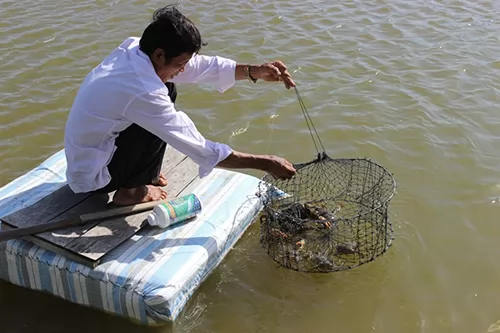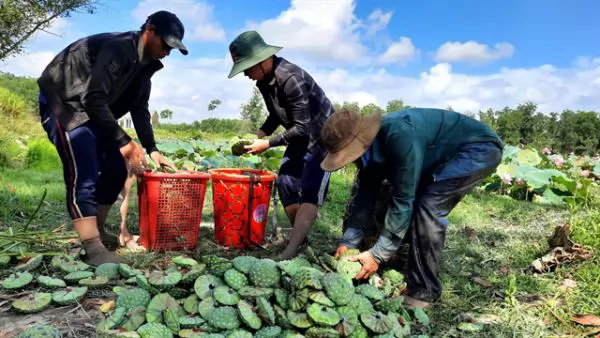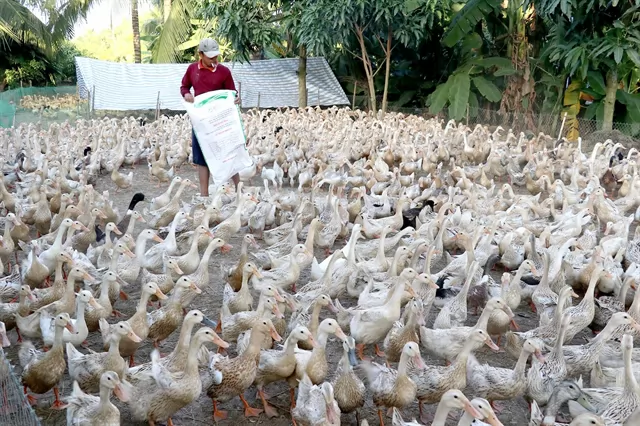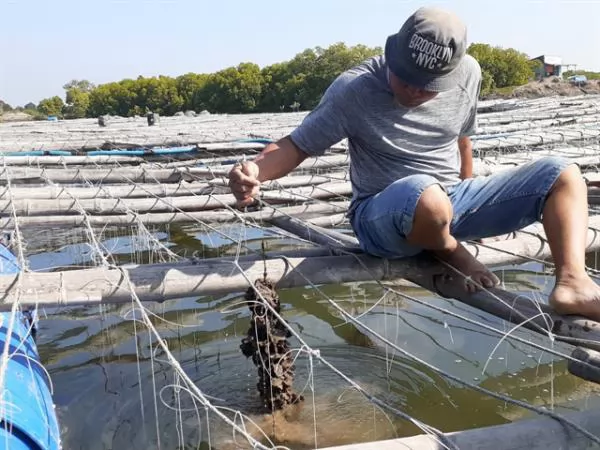Cà Mau co-operatives see higher incomes, stable prices

Breeding mud crabs in Cà Mau Province. More co-operatives are expected to be set up to improve farmers' incomes and product quality. — VNA/VNS Photo Huỳnh Thế Anh
CÀ MAU — The number of farmers' co-operatives that have effective operations has increased as a result of support policies from Cà Mau Province in the Mekong Delta.
The province now has 213 co-operatives and 1,085 co-operative groups operating in various sectors, mostly in agricultural production.
Nguyễn Trường Đời, a member of the Kinh Dớn Co-operative in Trần Văn Thời District, said he and other farmers have applied advanced farming techniques that "improve yield and reduce production costs".
"We no longer worry about price instability."
The co-operative has signed contracts with companies that guarantee outlets and buy input materials at good prices for the farmers.
With its effective operation, the co-operative now has 65 members, up from 27 in 2014 when it was established.
Nguyễn Vũ Trường, director of the co-operative, said the farmers' rice has high quality and is exported to the US and EU.
Many agriculture co-operatives' products are sold in supermarkets and wholesale markets, and are also exported.
There are 143 agriculture co-operatives in the province with more than 2,700 members whose average income is VNĐ110 million (US$4,740) per year, according to its Department of Agriculture and Rural Development.
In recent years, the province has provided human resource training as well as land, soft loans and advanced technologies for co-operatives. It has also invested in infrastructure and promoted trade for co-operatives' products.
In the past 10 years, the province’s Co-operative Support Fund has provided loans of about VNĐ44 billion ($1.9 million) for 300 production projects, according to the province’s Co-operative Alliance.
In addition, about VNĐ7.3 billion ($310,000) was provided by the province to invest in technology infrastructure for 13 co-operatives in the past two years.
New co-operatives
Last year, the province established 31 new co-operatives.
Đỗ Văn Sơ, chairman of the province’s Co-operative Alliance, said only 21 per cent of the province’s co-operatives operate effectively, while 13 per cent of the province’s co-operatives operate ineffectively.
To develop the collective economy, the province plans to review and improve the operational efficiency of co-operatives. It aims to have 60 per cent of co-operatives operating effectively.
“Besides support policies to develop the collective economy, we plan to establish farmer clubs on a pilot basis,” Sơ said.
This year, nine farmer clubs will be set up that will act as a link between farmers, companies, government authorities, scientists and economists to encourage more farmers to participate in the collective economy.
Farmer clubs will invite companies to discuss market information and their requirements for fertiliser, plant protection chemicals, labels, and origin tracing.
Co-operatives that meet the requirements will have guaranteed outlets, stable investments for production, lower middleman costs, and improved farmers' incomes. — VNS
Maybe you are interested

Thừa Thiên-Huế Province aims to build a lotus brand
THỪA THIÊN -HUẾ - The central province of Thừa Thiên-Huế has applied several measures to preserve and sustainably develop Huế's traditional lotus farming.

Đồng Tháp to develop duck breeding
The Cửu Long (Mekong) province of Đồng Tháp is seeking to develop large-scale duck breeding from now to 2025.

Bà Rịa - Vũng Tàu farmers expand breeding of Pacific oysters
BÀ RỊA-VŨNG TÀU — More farmers in the southern province of Bà Rịa-Vũng Tàu are earning more income by breeding Pacific oysters in an environmentally friendly and sustainable way.





